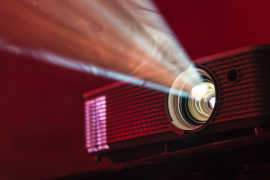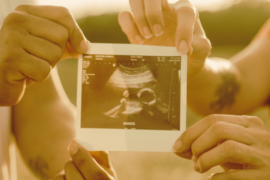We were different. Our brothers liked the dinosaurs at the Museum of Natural History and dioramas of animals slaughtering each other, we had less interest. One brother was a bully, one brother was bipolar, and we were frightened and we hated the way we looked and puberty came late for us and our uncle died of AIDS; we left our bodies, lived outside our bodies, but no one noticed. It was strange, to us, that no one noticed. Our mother wanted a girl after two boys and named us Anna after a beloved aunt, but we weren’t the daughter she’d had in mind. Our mother was tough on our eldest brother, too tough, and he bullied us in return. Our parents made mistakes.
And the gusts of greed blowing all around us and all through the nineties, Soho transformed into a mall, businesses transformed into brands, fashion labels stamped on our clothing – last year’s fashions, bought on sales racks at Marshall’s – and as we got older, visions of spacious Manhattan co-ops, summers in East Hampton, ski chalets in Verbier or Vail: someone else’s ambitions infecting our fantasies, like a virus.
Television raised us. The Fresh Prince of Bel Air and Brady Bunch reruns raised us.
Historical memories were passed along to us in storybooks, in songs, in social studies class, in the body language of our grandparents, in their caution and wariness and their aggressive bidding in bridge games and pinochle, in the way our families laughed indulgently at our small failures, took demonstrable pride in our accomplishments, were embarrassed by transgressors like Milken and Madoff, were relieved at our return after long plane trips. This history extended from Lublin in Poland and Minsk in Belarus to the Lower East Side, Williamsburg, Midwood: a history of jokes and gestures, customs and the warding off of the evil eye, bequeathed to us through generations, like a family inheritance. These peasant habits were replanted like the peasants themselves in Brooklyn, the Bronx, Cleveland, Chicago; in London, Manchester, Buenos Aires, and Toronto. We were these peasants: engineer peasants, lawyer peasants, librarian peasants, dentist peasants. We think: they’re just the same as us. The past and our neighbors, just like us and nothing like us.
And shame, a history of shame. Shame about our bodies, our breasts, our periods, the clothing that’s torn or not torn enough. Shame about a friend we dropped, shame about a friend dropping us, about our sex lives, about our lack of sex lives. At all times we are under surveillance: our own.
Our uncle took us to Radio City Music Hall and to Beauty and the Beast on Broadway. His death was horrible. First the hollowed out face, then the emaciated body. Wasting syndrome and our accountant mother buying cannabis on Brooklyn streetcorners to try to help. Purple skin lesions, thrush, anal cancer. And a year or two later, improved antiretroviral therapy that probably would have saved him. Our grandparents never get over it; it wasn’t the disaster they’d prepared themselves for.
Bras and underpants in our top drawer, the underpants sometimes frayed and the elastic waists wearing out, sweaters and sweatshirts in the closet, a stain on the mattress from a leak in the ceiling, a stain on the carpet where Lucky, the dog, peed, Blueberries for Sal, Judy Blume, Sweet Valley High, The Face on the Milk Carton, Annie on My Mind (almost our name), Agatha Christie, Borges, and Beloved. Linoleum and wallpaper fading in the kitchen from age and the sun. Dented pots and pans, our mother’s meatballs. Our parents singing Beatles songs and Motown and dancing to “Baby Love” and embarrassing us.
And our queerness: denied, ignored, referred to glancingly, eventually discussed. We believe no one will love us.
Skinny Leonardo DiCaprio trembling over Kate Winslet’s naked body in the steamy car, telling her, “Don’t worry, I’ll be all right.” We play the video over and over. We tremble too, at their beauty, their nakedness, their heterosexuality; at our longing.
We lived in Brooklyn before it was de rigueur. The swings at Kolbert Playground and pizza at Di Fara. We went to a Jewish day school although our parents didn’t believe in God. Then the Q and the 2 to Stuyvesant High and in the winter, the cold walk along Chambers Street and across the Tribeca Bridge. The 9/11 attacks our senior year a few blocks away from our school and our exile to Brooklyn Tech for a month, and the dust and terror, and Bill Clinton speaking at our graduation. And the beautiful, brilliant Dominican girl we crushed on, who competed in Miss Teen USA and worked at Goldman Sachs and became a newscaster, whom we still watch sometimes on CBS Weekend News.
We go to private colleges, state schools; it varies. Psychology classes to understand our brothers, but not ourselves. Romantic poetry to understand why we preferred prudent day to exalted night, although sometimes even a clear eye loves the shadow (Hölderlin). French, because of a language requirement. German, because we’re a glutton for punishment. History of Art, because we know nothing about art. We befriend a goth girl with an eating disorder, and then we date her awkwardly and try to “cure” her, and we’re devoted and then she breaks up with us. Our first girlfriend. We make mistakes.
No one will love us.
And the dream about the history class that we haven’t attended all semester and forgot to drop and now we have to take a final exam and we can’t even find the room where the test is being given: you know the dream.
The two Gulf wars that feel like one. A trip to Europe after college to see the churches and ancient bridges and the famous art, and the paintings are smaller or larger than we imagined. In Prague we meet a French woman and have a fling for three days and afterward she doesn’t want to stay in touch. We think she must be misunderstanding, perhaps it’s the difference in languages, but no, she understands.
Our twenties and our early thirties aren’t always easy. We’re anxious, we have stomach problems. Our contact lenses irritate our eyes. We move apartments too frequently. We don’t know what we want to do with our lives. We obsess about music. We go through phases, for a little while or longer, Philip Glass, Björk, Celia Cruz, Billie Holiday, Leonard Cohen, Beyoncé.
Abu Ghraib and torture, Katrina and the politics of abandonment, the collapse of Lehman Brothers.
And long spells between lovers, a year or two (or three) sometimes, but this is before dating apps make things easier, and we think that there must be something wrong with us. And there is something wrong with us: the way we float outside our body. Our lack of courage. Although we will fall in love and go to Budapest to visit our wife’s parents and when we see Fidesz marching across the Margit Bridge in a rally for Viktor Orbán, we will stand tall but tell our toddlers, quick, quick, look away from the Nazis. But that’s much later.
At work people respect us and we suspect we are fooling them. We are calm, we are cordial, we are relied on. We have friends, roommates, a summer share at Cherry Grove, movies at Film Forum, concerts at Carnegie Hall, walks in Central Park, Radiohead at Bonnaroo, and we’re alone. We work in publishing, we work in marketing, we work for a pharmaceutical company. This will be our life, we imagine, the subway commute, the winter cold, the summer heat, the Sunday Times, an annual vacation to Fire Island or Provincetown, worrying about the stock market now that we have a 401k, worrying that our brother won’t take his Lithium, enjoying our nieces and nephews (we take them to Broadway shows). Métro, boulot, dodo. And we’re alone.
At a coffee shop across from the fountain at Lincoln Center, sitting with friends, we feel suddenly that none of this is authentic, it’s a simulacrum of life and we’re a simulacrum of a human being. We are outside ourselves again, but as in a Philip K. Dick story, the world itself is artificial. The continuous dull throb of conversation, the clattering of plates and tinkling of glasses, the distant thrum of the subway beneath us, all of this has lost its meaning. The life behind the noise has been wiped out abruptly, leaving only the objects, as with a neutron bomb. We are terrified and say nothing, go on with the meal and our gossip. It’s as if civilization is a willing suspension of disbelief.
Here is a photograph from a birthday gathering: Amy, Mark and Steven, Anna, Leslie, Nick, Joanne. Arms around one another. Our crowd. Anna, in the middle, is the most mature looking, but only because it’s her birthday and she’s spent an inordinate amount of money on a new hairstyle and she’s wearing a spaghetti strap summer dress – we have a summer birthday – that shows off her bare shoulders and full breasts; and her breasts are only large because she’s overweight this year; and she’s overweight because of the croissants, chocolate, and cold sesame noodles with spicy peanut sauce she eats when she is feeling depressed. Some things we and society are permitted to talk about, but some things we aren’t: exactly how much money we make, exactly how often we masturbate, what or whom we fantasize about, our sickest sexual fantasy, our idle daydreams, who secretly enjoys the smell of their shit, who remembers the metallic taste of blood in our throats after a nose bleed.
In the future our wife, who’s Hungarian, will be patient with us, in bed.
In the future our wife will like American musicals, Annie Get Your Gun and A Chorus Line and The Bridges of Madison County (we missed that one) and Come From Away (Canadian, actually), singing loudly to the songs while listening to the Broadway channel on SiriusXM.
The Obama years and then after Trump wins we wake with a pain, an actual pain, in the pit of our stomachs. We march in the Women’s March, we wear pink hats, but our head aches, we feel we may throw up. It’s like a terrible hangover that lasts four years. But no, longer, we aren’t entitled to control our bodies anymore. The Supreme Court: all people are created equal, but some people are more equal than others. Nothing is safe, our grandparents were right to be apprehensive, anything can be taken away.
But these are also the years we read Annie Ernaux. And we get a dog out of desperation, a cocker spaniel, like Lucky from our childhood, and meet a Hungarian woman with a Hungarian dog in the veterinarian’s waiting room, and later we will come across the Vizsla and the woman in the dog park. The Vizsla is hyper and needs a lot of exercise. And then we meet the woman a third time on the patio of Ginger’s, a lesbian bar. And then we marry.
All around us the city is at rest, Brooklyn is silent, the streets are lit up by street lamps, and people go home to their apartments, weighing the profits and loss, the pleasures of the day; the Grand Army Plaza Greenmarket is empty of grapes and flowers and handicrafts; but string music can be heard in the gardens of brownstones in Park Slope; maybe someone in love plays there or a lonesome woman thinks about far off friends and her youth; while church bells ring, and a breeze rises in Red Hook, flowing over the borough and touching the tips of the trees in Prospect Park; and look!, the silhouette of our Earth, the Moon, comes with its secret now also, and gushing Night comes full of stars and indifference – astonishing Night, a stranger to humanity, mournful and gorgeous, sparkling (Hölderlin).
Hanna (yes, we’re Hanna and Anna) is older and wants to get pregnant right away, but she has infertility issues and we need to do in vitro, and we have twin boys. Then covid. To us, a great anomaly, but will children think of this period as relatively normal or customary? When they grow up and consider their lives, will they recall the pandemic as we recall the war on terror? As something painful and endured, like a broken arm or appendicitis, but somehow in the end rather ordinary, a bridge to the past like any other, like the craze(s) for Crocs, Bush v. Gore, famine in Somalia, Brexit? We think about this often.
We remember a world without the internet, we remember (dimly) a world without cell phones. We recall that broken arm, that appendectomy, the first flutter of desire, our first love, the deaths of Kurt Cobain and Michael Jackson, the Twin Towers, the Great Recession, Sandy Hook, Me Too, Black Lives Matter, the pandemic, the honking of horns when Trump was defeated, the insurrection. Our wife’s pleasure in nursing, the boys and their first smiles, the lack of sleep, difficult travel on airplanes, the babies crying and people judging our mothering, the boys raising their arms and asking to be picked up, the first days of preschool, the books we read them. The playfulness we’ve learned with our spouses and re-learned with our children, our fear of fascism. Nervousness and nostalgia, prudence and exaltation. We wish, you and I, to record for posterity the history we’ve experienced – the history we’ve embodied – simply by being alive in this time, in this place.
We are the same.
EUGENE STEIN lives in Los Angeles with his husband and children. His short stories have been published in Iowa Review, North American Review, Colorado Review, Witness, Catamaran, and Michigan Quarterly Review. He has won a Pushcart Prize, and his story in Michigan Quarterly Review was reprinted in Harper’s.
Like what you’re reading?
Get new stories, sports musings, or book reviews sent to your inbox. Drop your email below to start >>>
NEW book release
Direct Connection by Laura Farmer. Order the book of stories of which Mike Meginnis says there is “an admirable simplicity at their heart: an absolute, unwavering confidence in the necessity of loving other people.”
GET THE BOOK


